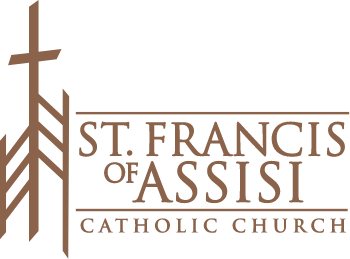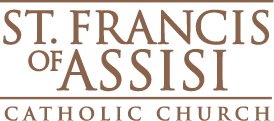Fr. Huslig Homily, 8/17/2025
Jesus sees the world through priestly and prophetic eyes. In those eyes, fire isn’t just something that destroys, but something that in the temple of God purifies, elevates, and raises up to Heaven. The sacred fire of God’s love separates what is good, holy, and pure in us—in our hearts, our communities, and our businesses—from what is mediocre, tired, and complacent. And that can’t help but burn a little bit sometimes. We’d probably rather it didn’t. We’d probably rather our Lord just keep telling us those comforting words like, “Come to Me, all you who labor and are heavy burdened, and I will give you rest.”
But the Gospel would not be something worth preaching—something with the energy and force to set the world on fire—if it didn’t call us and elevate us to something more than we already are. And while it’s uncomfortable to hear Jesus say in Luke 12:49–53 that He did not come to bring a false peace and complacency, but division in the truth, our experience tells us that He’s right.
We know that Jesus’ commandments on care for the poor and the migrant, the stranger, His teachings on marriage, forgiveness, and the Eucharist—all of these things, if we take them seriously, divide us in some way from those who would say, “Well, those are nice ideals, but we can’t really live that way. It’s not reality.”
Jesus’ words leave a division in our own hearts between the part that says, Yes, Jesus is worth imitation, and the part that hesitates and says, Maybe tomorrow. Between the part that wants to run towards that fire, and the part that warns, That’s going to burn if I do that.
Jesus’ words divide us within our own hearts. And so how could they not divide us from others too at times? Not in the sense of making us “holier than thou,” but in the honest recognition that if I’m taking the Gospel seriously, my life is going to head in a different direction than if I weren’t.
Jeremiah, whom we hear about in the first reading, is a great example of this suffering division—both within himself and from those around him. He was a prophet chosen by God, and yet in the middle of his prophetic mission, exhausted with his work, he complains to God: “Lord, You duped me, and I let myself be duped.” Division within himself. And in the reading, his prophecies that Judah should surrender to the Babylonians in order to save themselves and their city earn him a place in the muddy pit—separated and divided from those he was sent to serve.
So with all this apparent bad news and difficulty that the Gospel brings, why are any of us here? Why would we want to share in Christ’s mission to set the world on fire?
Because we know that these difficulties are ultimately the sufferings and the little burns that come with love. We know the Gospel is hard. But we also know that the Gospel has kindled something in us that is better than us. It has called us to something more than we were before—and there is a love there that we could not have manufactured ourselves.
Jesus has called us and taught us to be more than we were before. Because that’s what a strong love does, even if it brings a little pain in the process. He desires to set our hearts on fire—and we know He has, even if they flicker a little bit sometimes.
Do we want to see the world on fire with the Gospel? Do we want to share in our Lord’s mission—not to divide for the sake of pain, but to divide for the sake of goodness, growth, and holiness?
May He give us that desire this day.
Fr. Grant Huslig, Parochial Vicar

